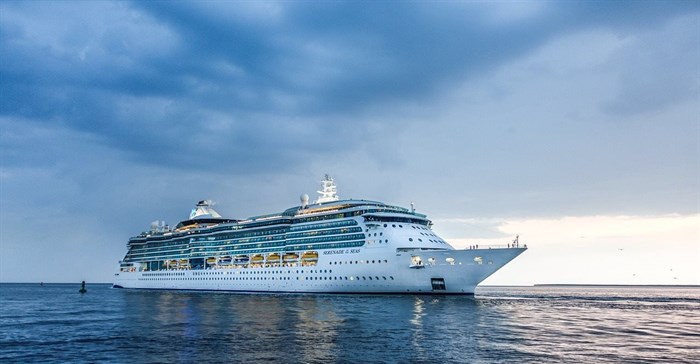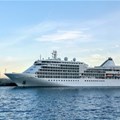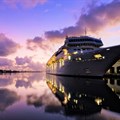Recently, cruising has surged in popularity worldwide, capitalising on the rebound of tourism following the challenges of the Covid-19 pandemic. The Western Cape has emerged as a notable contributor to this trend, standing out as a key destination for cruise enthusiasts.
An economic impact study recently conducted by Wesgro revealed the remarkable injection of R1.2bn into the provincial economy between November 2022 and May 2023. This success story unfolded with 70 cruise ships carrying 145,000 passengers and 42,000 crew members, marking the most successful cruise season for the Cape Town Cruise Terminal to date.
The study underscored that for every 30 cruise passengers, one full-time job was created, resulting in a total of 1,864 local jobs during the 2022/23 season. The port of Mossel Bay also shone, welcoming 14 ship visits—almost double the number achieved in the 2019 season, the year before the pandemic struck.
As SA's current cruise season gains steam in the peak summer months, coinciding with the Northern Hemisphere's winter escape, it's vital to wholeheartedly support and commit to positioning the cruise industry as a powerhouse of eco-friendly practices.
To propel growth and attract cruise ships, especially those with a green touch, we need a well-rounded strategy. It's not just about upgrading infrastructure and streamlining visa processes; we should invest in personalised and unforgettable experiences, put sustainability first, and launch marketing campaigns that showcase our unique offerings, rich heritage, and commitment to conservation. These initiatives will not only enhance cruise tourism but also give a significant boost to the overall economy.
In pursuit of this vision, Wesgro has established Cruise Cape Town—a collaborative effort comprising stakeholders from the tourism sector, local government, and port authorities. This dynamic group not only markets the province and the city at global events like Seatrade Cruise Global but also zeroes in on the critical logistics that support a flourishing and sustainable cruise industry, with sustainability as the driving force.
Expedition ships
Amid heightened concerns about climate change, we must adopt a mindful approach to environmental stewardship. As the cruise industry endeavours to decarbonise, a potential solution in the near to mid-term could be found in the allure of smaller expedition ships.
Unlike their larger counterparts, these nimble vessels explore remote destinations, steering clear of congested ports and leaving a lighter environmental footprint. The smaller size results in decreased energy consumption and emissions, aligning seamlessly with the growing eco-conscious mindset.
These ships tap into the desire for immersive experiences, a trend that is not only new but also gaining popularity. However, the significant trend lies in guests seeking to cruise to destinations where they can immerse themselves in the local culture. Expedition ships not only tread more lightly on the environment but also contribute to social sustainability. With fewer visitors on board, expedition ship itineraries tend to be more respectful of local communities, offering authentic and immersive experiences.
In the modern travel landscape, authenticity and untouched landscapes are magnets for explorers. Expedition cruises deliver precisely that, establishing a genuine connection with nature while minimising the impact on delicate ecosystems. In contrast to massive cruise liners confined to major ports, smaller expedition ships can delve into the heart of coastal treasures, spreading economic benefits across a broader geographic area.
Imagine a cruise navigating the intricate channels of the Garden Route or gliding along the rugged coastline of the Wild Coast. It's not just about tourism; it's about showcasing the hidden corners of SA that often elude traditional travellers, all while maintaining a strong commitment to conservation.
There's much we can learn from other nations. Take Norway, for instance—a country that has seamlessly integrated sustainable cruise tourism into its picturesque fjords. A great example is the Port of Trondheim, which rolled out shore power facilities for smaller cruise ships in 2022. This step allows vessels to tap into more sustainable energy sources while visiting, leading to a reduction in emissions.
The Nordic nation, known for relying heavily on renewable energy, is demonstrating a solid path toward building a booming tourism industry that lives in harmony with its breathtaking natural landscapes—proving that sustainability and prosperity can indeed sail hand in hand.
The future
Cruise lines are actively embracing sustainability through advancements in technology, infrastructure, and operations. According to the latest report from the Cruise Lines International Association (CLIA), a leading trade association in the cruise industry, there's a notable shift from oil-based fuels to liquefied natural gas (LNG).
The report predicts that 60% of ships launching between 2023 and 2028 will rely on LNG as their primary propulsion source. Furthermore, all CLIA-member ships under construction until 2028 will be equipped with shoreside power capabilities. This move is significant as connecting to shoreside electricity during port stops can dramatically reduce emissions by up to 98%. It's a promising step toward a more sustainable future for cruise tourism.
The report notes that LNG is currently the cleanest available fuel at scale, and cruise lines are exploring sustainable alternatives like advanced biofuels, synthetic fuels, methanol, hydrogen, fuel cells, and batteries. Ships designed for LNG can easily switch to more sustainable fuels in the future. The technology and infrastructure in place today provide a clear path to a more sustainable cruising experience.
A study by the World Tourism Organisation (UNWTO) and the Asia-Pacific Tourism Exchange Centre (APTEC) which focused on Southeast Asia underscored the importance of sustainable cruise tourism. While cruise tourism brings economic benefits, it can also harm the environment and host communities.
The key to achieving sustainable tourism is the preservation of a destination's unique natural and cultural heritage, which essentially forms its brand and attracts tourists.
To overcome challenges and implement sustainable tourism practices, benchmarking and sharing best practices are deemed essential. Meaningful dialogue with cruise lines, and associations, and considering multiple perspectives is crucial in the development of effective and sustainable policies.
The national government's Operation Phakisa, aimed at boosting the ocean economy, is a positive step forward, but progress has been sluggish. This initiative not only supports but also finances various aspects of sea-related activities, aligning well with the untapped potential of our extensive coastline. To make this project successful, collective efforts are essential.
But sustainability is paramount. Focusing on easily achievable benefits, particularly through the promotion of sustainable cruise tourism, can safeguard the environment while providing a necessary boost to the economy.


















































